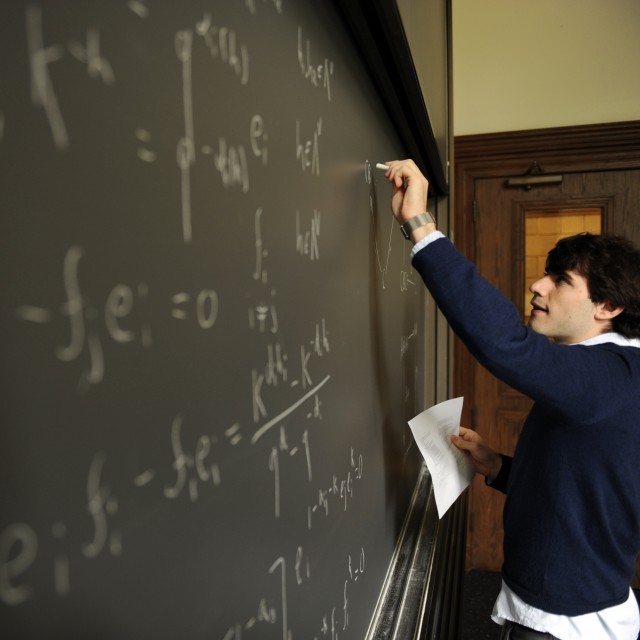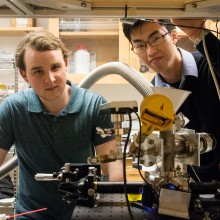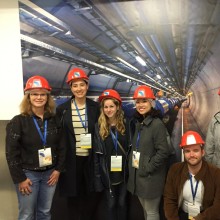
Academics
Physical Sciences Collegiate Division
The Physical Sciences Collegiate Division (PSCD) is where two major areas of intellectual exploration—physical and mathematical sciences—come together to help students better understand the physical world from multiple perspectives, ranging from the smallest chemical compounds to the densest stars.
Quick Links
Physical Sciences Curriculum
- Geophysical Sciences: Students build an understanding of Earth, its biota, and its place in the cosmos through an introduction to earth, atmospheric, planetary, and evolutionary sciences.
- Astronomy and Astrophysics: From the Big Bang to the present day, students explore planets, stars, galaxies, and the elements.
- Chemistry: Students learn about the chemistry underlying energy technologies and human life through courses that introduce relevant topics and incorporate hands-on lab experience.
- Physics: Students explore how our everyday world relates to the key concepts of classical and quantum physics, applying physics concepts to modern society.
- Mathematics: Students gain a solid, applications-oriented approach to calculus in addition to a theoretical and high-level treatment of the subject.
- Statistics: Ideal for students interested in statistical concepts, techniques, and applications to data analysis, students engage with problems in the design, analysis, and interpretation of experiments and observational programs.
- Computer Science: Students establish a grounding in computational thinking and experience working with real-world data and functional and imperative programming paradigms.
The goal of general education in the physical sciences is to engender in the student the ability to understand and assess our understanding of the physical world.
The general education requirement in the mathematical sciences present broadly applicable techniques for formulating, analyzing, and solving problems, and for evaluating proposed solutions.
With Course Clusters, College students can focus the elective courses they take to gain a better understanding of specific topics—like climate change, economic history, or inequality—by studying them through the lens of such diverse disciplines as geophysical sciences, art history, and public policy.
Learning Beyond the Classroom
Take advantage of experiences off campus, in Chicago, across the nation, and around the globe.


